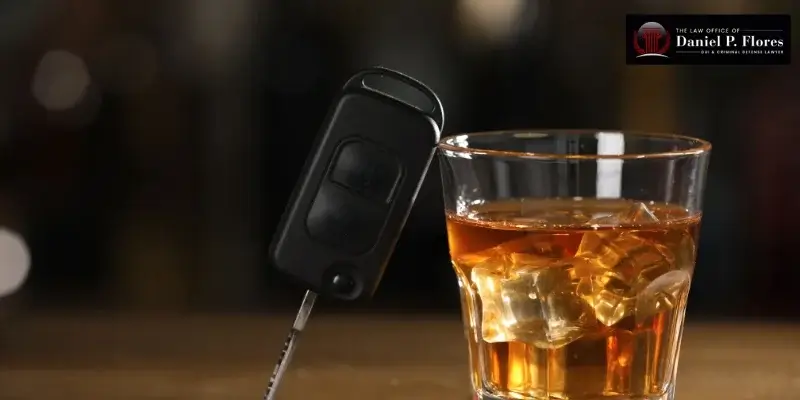|
|
Last Modified on Oct 06, 2025
All You Need to Know About Field Sobriety Tests in California
When drivers get pulled over in California, they are often asked to take field sobriety tests (FSTs). The goal of these tests is to assess driver impairment, allowing officers to determine whether to pursue DUI charges. However, the situation surrounding field sobriety test laws is somewhat complicated.
In California, you are not required to perform FSTs upon request. Many drivers assume that doing so is the quickest way to prove that they are not drunk, but that’s where the complications come in. Many people are unable to pass field sobriety tests even when sober. Let’s explore why.
What Are Field Sobriety Tests?

To start from the beginning, field sobriety tests are physical or mental exercises administered by police officers during DUI investigations. There are many different FSTs, but some of the most common of them include:
- Walk-and-turn
- One-leg stand
- Horizontal or vertical gaze nystagmus
- Finger-to-nose
- Hand pat
- Reciting the alphabet backward
- Counting backward
- Standing at attention with eyes closed for 30 seconds
These tasks may be simple, but they’re not always easy. Many people cannot pass a full battery of FSTs even when they are completely sober, and officers working DUI cases don’t always administer the tests or interpret the results properly.
Field Sobriety Test Legality
While it’s completely legal for officers to request that you perform an FST, it’s also fully within your rights to refuse it. California’s implied consent laws require that you take chemical tests administered while investigating a DUI, but they do not apply to FSTs.
One reason FSTs are not placed on the same level as chemical tests is that they are subjective. That’s not the only problem with field sobriety tests, though. Only three of the many FSTs employed by California police officers are scientifically validated.
The walk-and-turn, one-leg stand, and nystagmus checks are the three tests created as a battery by the NHTSA. They were originally subjected to a scientific study that showed a 91% accuracy rate. However, more recent testing has shown lower accuracy rates of:
- 88% for the horizontal gaze nystagmus test
- 79% for the walk-and-turn test
- 83% for the one-leg stand test
To hold any validity at all, FSTs must be administered properly. The NHTSA has strict requirements in place to ensure the accuracy of test results, and any failure to administer the test according to these requirements may render the results unreliable.
Common Problems With FSTs
Submitting to an FST rarely works out in a driver’s favor because these tests are riddled with problems. They include:
- Test inaccuracies: Only three of the FSTs are NHTSA-validated, and even these do not have an accuracy rate of 100% in detecting impairment.
- False positives: There are several factors that can contribute to someone failing an FST, including environmental conditions, personal health issues, or even clothing choices. There’s no way to distinguish between these factors and alcohol-induced impairment.
- Officer errors: Police officers often administer or interpret FSTs incorrectly because they don’t have adequate training.
- Officer bias: Even when performed correctly, officer bias means that investigating officers in the Golden State often fail to accurately interpret the results. Instead, they decide whether to arrest you or not before giving you the FST and conducting it to validate their opinion.
Failed FSTs can be used against you in court, while a failure to take the FST, to begin with, cannot. This is particularly relevant for FSTs performed for THC. In one recent study, officers found that study participants who had consumed THC were impaired 81% of the time, but also identified 49% of the placebo group as being impaired. It’s not worth the risk that the officer will misinterpret the test.

FAQs About Whittier, CA DUI Attorney
Can You Say No to a Field Sobriety Test in California?
You can say no to a field sobriety test in California. However, you should note that FSTs are separate from chemical tests, which you are required to take under California’s implied consent laws. Chemical tests include both blood and urine testing performed at the station, as well as breathalyzer tests. You are not entitled to legal representation while you decide whether to comply with the law and take these tests.
What Are the Clues for the Walk-and-Turn Test?
The clues for the walk-and-turn test indicate to an officer that the person performing the test may be under the influence of drugs or alcohol. The clues themselves are:
- Becoming imbalanced during instructions
- Starting early
- Stopping while walking
- Failing to touch heel-to-toe
- Stepping away from the line
- Balancing with the help of the arms
- Performing turns incorrectly
- Taking the wrong number of steps
What Do They Ask You on a Field Sobriety Test?
On a field sobriety test, they can ask you to perform any one of many different physical or mental activities. Common mental activities include reciting the alphabet backward or counting backward. Common physical activities include the walk-and-turn test, one-leg stand, and checking for nystagmus. Only the last three of these tests have been validated by scientific studies, and you are not required by law to take any of them.
What Are the Limitations of FSTs?
The limitations of FSTs include the results being affected by environmental factors and the subjects’ potential physical or psychological issues, which could unfairly impact the test results. Procedural factors, like officers performing or interpreting the test incorrectly, can also play a role. Combined, these reasons explain why field sobriety tests are voluntary and do not always stand up in court if you fail them.
Hire a DUI Lawyer
If you’re facing a DUI conviction based on field sobriety tests, you should know that there are many ways to challenge their accuracy in court. Hire a DUI lawyer with a clear understanding of California DUI laws and a history of successfully representing similar clients. The Law Office of Daniel P. Flores has handled countless DUI cases. We can help you understand FST results and how they will impact your case. Contact us to schedule an initial consultation.
Field Sobriety Tests in California Resources:






